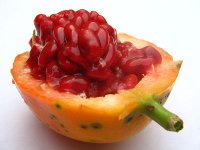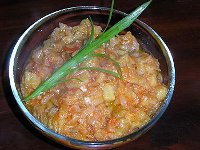Писать экзамен
In English we say “to take an exam.” In Russian we say «(на)писать экзамен». If you try to say in Russian «Я взял экзамен» that means “I took the exam [and it's no longer where it originally was].” «Я хорошо написал экзамен» means “I did well on the exam.” «Я плохо написал экзамен» means “I did poorly on the exam.”
Sample sentences:
| Сегодня написал экзамен по инглишу… не так уж и сложно. ¹ (source) | Today I took my English exam… it wasn't too bad. |
| Скажите кто уже написал экзамен по алгебре, девятый класс за 2008 г.? (source) | Tell me, has anyone already taken the algebra test (ninth grade for 2008)? |
| Персональное спасибо тем, кто хорошо написал экзамен — такие моменты и заставляют поверить в то, что преподавательский труд и силы были вложены не напрасно. (source) |
A personal thank you to those who did well on the exam: such moments make me believe that my work and effort as a teacher were not in vain. |
| И те, кто написал экзамен на «двойку», все же получили аттестаты с «тройками». (source) | And those who [actually] got dees on the exam have all received cees on their certificates. |
¹ Of course инглиш is not the Russian word for English. English students in Russia often play with English and Russian simultaneously for humorous effect.
Маракуйя

Back in the Soviet era there wasn't much tropical fruit in Russia. You couldn't find a banana to save your soul. Now bananas in Russian are as common as smog. Imagine my surprise, then, when a former student of mine wrote from Moscow that she had bought canned passion fruit and yogurt with passion fruit. Wow, everything has changed in Russia since communism fell. I hate it when that happens.
The Russian word for passion fruit is маракуйя, a word most likely borrowed from Spanish. (There are also some other phrases that describe it, namely, страстоцвет съедобный, пассифлора съедобная, and гранадилла пурпурная; маракуйя seems now to be the standard.) Words ending in -йя are uncommon in Russian, so one immediately is curious what the genitive plural is. It turns out to be маракуй.
Some sample sentences:
| Я лично не верю, что в йогурт с маракуйей кладут маракуйю. Это всё продукты химической промышленности. | Personally, I don't believe that they put passionfruit in passionfruit yogurt. It's all just products of the chemical industry. |
| Если вы устали от хмурого неба, просто скушайте маракуйю! (source) | If you are tired of the gloomy weather, just eat a passionfruit! |
| Для этого суфле нужно двести пятьдесят милилитров нектара маракуйи. | For this soufflé you need 250 mililiters of passionfruit nectar. |
| Сперва Зина мне не понравилась, а потом она меня ударила по голове маракуйей, и с тех пор я её ужасно люблю. | At first I didn't like Zina, but then she hit me in the head with a passionfruit, and since that time I have loved her like crazy. |
| es | maracuyá |
| fr | fruit de la Passion |
| ge | Pasjonsfrukt |
| pt | maracujá |
Суп
The Russian word for soup is суп. It is an end-stressed noun in the plural, but stem-stressed in the singular, which means it declines like this:
| Singular | Plural | |
| Nom | суп | супы |
| Acc | суп | супы |
| Gen | супа | супов |
| Pre | супе | супах |
| Dat | супу | супам |
| Ins | супом | супами |
The Russians love soup, and frankly the best soups I've ever had in my life have been in Russia. That's because the Russians aren't worried about things like heart disease and cardiac plaques: there's plenty of fat or butter in every soup. And soup is an essential part of обед. If you try to serve a Russian обед and there's no soup involved, you can be darn sure they think you are stinting on your hospitality. The most famous Russian soups are a beet soup called борщ (see Olga's entry about it) and a cabbage soup called щи.
Although for classroom purposes we say that Russian has six cases, in fact it has quite a few more. Some nouns distinguish a locative case that is separate from the prepositional case, and суп is one of them. That is, sometimes instead of «в супе» you may encounter «в супу» with the meaning “in the soup.” The locative case is slowly dying out in Russian, merging with the prepositional. «В супе» is much more common these days than «в супу».
You may also encounter a partitive case form супу, which means “some soup” as in «Хочешь супу?» “Do you want some soup?” or «На завтра хозяин сварил грибного супу из шампиньонов» “For tomorrow the host has made some mushroom soup from champignons.” The partitive case is also dying in Russian, merging with the genitive case. Mostly you will find the plain genitive case in such contexts nowadays.
Sample sentences:
| Кто там плавает в супе? | What is that floating in my soup?¹ |
| Мама делает суп из сушёных грибов. | Mom makes soup from dried mushrooms. |
| Девушки, подскажите, как варить мясо для супа? | Ladies, could you please tell me how to boil meat for soup? |
| Алёна Винницкая покорила мужа гречневым супом. (source) | Alyona Vinnitskaya won her husband over with buckwheat soup. |
¹ Кто in Russian applies to animals as well as people, so the sentence means “What kind of critter is floating in my soup?”
Икра, часть третья
Okay, brace yourself, this one is freaky. In addition to meaning caviar and vegetable pâté, икра also means calf in the sense of the gastrocnemius muscle on the back of your lower legs. In that sense it is mostly used in the plural, although the singular also exists:
| Sg | Pl | |
| Nom | икра | икры |
| Acc | икру | икры |
| Gen | икры | икр |
| Pre | икре | икрах |
| Dat | икре | икрам |
| Ins | икрой | икрами |
Sample sentences:
| Жутко болят икры ног при ходьбе. | My calves hurt terribly when I walk. |
| Хождение по воде (ноги погружаются до икр) способствует закаливанию тела. (source) | Wading in water (the legs are immersed up to the calves) helps strengthen the body. |
| Поднимайтесь на носочки. Это хорошее упражнение для укрепления мышц ступней и икр, а также для того, чтобы разогнать скопившуюся в венах кровь. (source) | Stand on your tiptoes. This is a good exercise for strengthening the muscles of the feet and calves, as well as for dispersing blood that has accumulated in the veins. |
| Работа над икрами и предплечьями не так изнурительна, как работа с основными мышечными группами. (source) | Working on the calves and forearms is not as exhausting as working with the primary muscle groups. |
Икра, часть вторая

Just because a can has the word икра on it does not necessarily mean that it contains caviar. If you chop vegetables finely, season them and mix them with some oil until they make a paste that resembles pressed caviar in texture, that is called икра, in which context it's probably best to translate it as pâté. One of the most common is баклажанная икра eggplant pâté (recipe), which is as ubiquitous in Russian families as California Dip is in American families. Кабачковая икра squash pâté is also common. I've even had грибная икра mushroom pâté in restaurants.
<< 1 ... 113 114 115 ...116 ...117 118 119 ...120 ...121 122 123 ... 158 >>